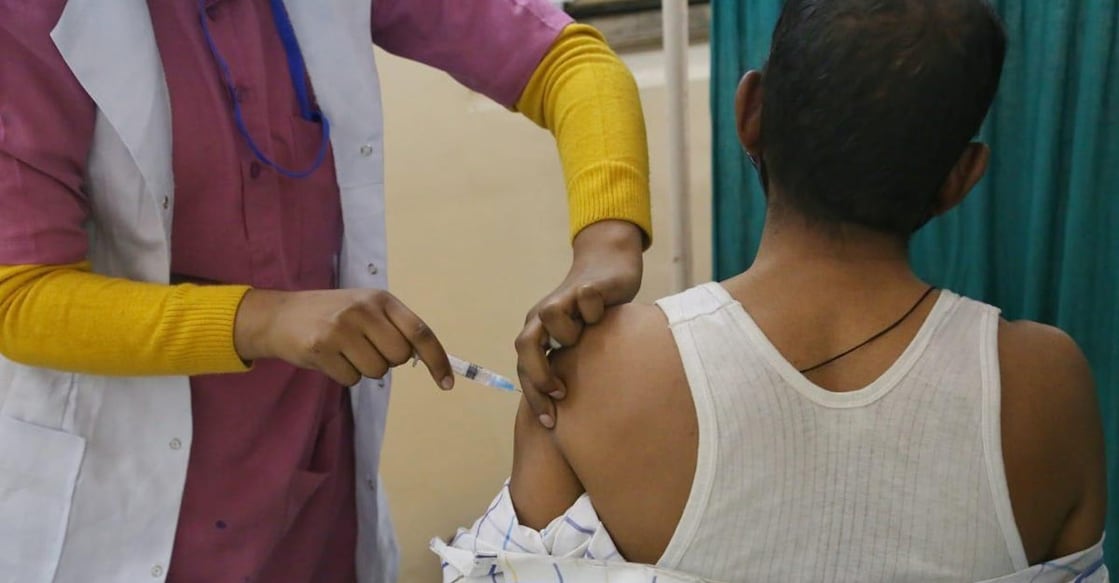Phase-II COVID vaccination drive begins: All you need to know

Mail This Article
On March 1, India opened up COVID-19 vaccination for a wider group of beneficiaries. All citizens above 60 and those within the age bracket of 45-59 years with specified co-morbidities will be the beneficiaries of the next phase of vaccination drive. Besides them, the vaccination drive would also cover those from the previous groups who had been left out.
Each citizen can select vaccination centres of their choice. In this phase, private sector hospitals will also be vaccination centres.
“The states and UTs were explained the basic features of version 2.0 of the digital platform CO-Win, which is a population-scale software with the capacity of processing several thousands of entries,” the union health ministry said in a statement.
Where can you get the vaccine?
It has been decided that COVID Vaccination Centers (CVCs) must be government health facilities such as primary health centres, community health centres, Ayushman Bharat-Health and Wellness Centres (HWCs), sub-division hospitals, district hospitals and medical college hospitals or private hospitals empanelled under CGHS, Ayushman Bharat- Pradhan Mantri Jan Aarogya Yojana (AB-PM JAY) and similar state health insurance schemes.
States/UTs were asked to ensure that private health facilities have adequate space for the vaccination process—basic cold chain equipment for storing vaccine vials, a team of vaccinators and staff, and facilities for the management of any adverse event following immunization (AEFI) cases.
How can you get the vaccine?
For people who wish to register could self-register in advance by downloading the Co-Win 2.0 portal and through other IT Applications such as Aarogya Setu.
“The platforms will show government and private hospitals serving as COVID Vaccination Centres (CVCs) with date and time of the available schedules. The beneficiary would be able to choose the CVC of his/her choice and book an appointment for vaccination,” the ministry has said. Those who could not self-register in advance can walk into the identified COVID Vaccination Centres and get themselves registered on-site and then vaccinated.
The State/UT Government will also take a proactive lead, and specific date(s) for COVID vaccination will be decided where target groups of potential beneficiaries will be vaccinated. The State/UT health authorities will ensure that the target groups are actively mobilised and brought to the vaccination centres. ASHAs, ANMs, Panchayati Raj representatives and women’s self-help groups (SHGs) will be utilised for mobilizing target groups.
“Under all the above three routes, all beneficiaries would be captured on Co-WIN2.0 platform and would be issued digital QR Code based provisional (on receiving the first dose) and final (on receiving the second dose) certificates. These can be downloaded from the link shown in the SMS the beneficiary shall receive after the vaccination. Print out of these certificates can also be taken from the vaccination centres,” the ministry said.
Pay for the shot?
Vaccination will be free of charge at the government centres. The beneficiary will have to show a photo ID document for proof of age (preferably Aadhar card or EPIC card) and a certificate of co-morbidity (if required). Those taking the COVID vaccine at any designated/empanelled private health facility will have to pay a pre-fixed charge.
What documents will you need to carry?
All beneficiaries must be advised to carry any one of the following photo ID document—Aadhaar card, Electoral Photo Identity Card (EPIC), Photo ID card specified at the time of registration in case of online registration (if not Aadhaar or EPIC). A certificate of co-morbidity for citizens in the age group of 45 years to 59 years (signed by a registered medical practitioner) would also be required. Employment certificate/official identity card–(either but with photo and date of birth) for healthcare and frontline workers.

